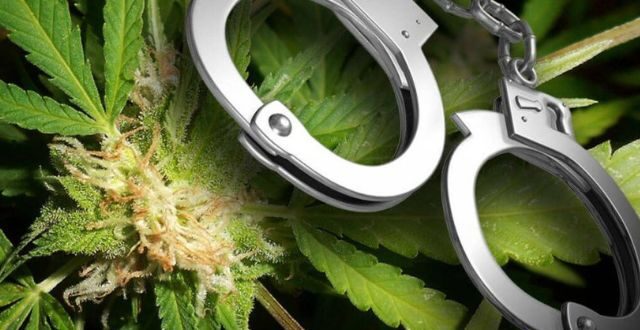Arkansas stands firm on its marijuana laws, and understanding the boundaries is crucial for residents.
If you’ve ever wondered about the fine line between legality and a felony charge, particularly regarding how much weed is considered felony in Arkansas, this article breaks down the essentials in clear and simple terms.
Let’s dive into the details to ensure you’re well-informed about the legal consequences associated with cannabis possession in the Natural State.
1. Possession Limits
In Arkansas, any amount of marijuana possession can lead to legal repercussions. Whether it’s a small joint or a larger quantity, it’s crucial to understand that possession, irrespective of the amount, is against the law.
2. Felony Threshold
The line between a misdemeanor and a felony is thin when it comes to marijuana possession in Arkansas. Possessing over four ounces of weed is considered a felony, carrying more severe consequences than a misdemeanor charge.
3. Legal Consequences
Being caught with over four ounces of marijuana in Arkansas is no small matter. A felony charge can result in hefty fines and, more significantly, imprisonment. Understanding the potential consequences is vital for making informed decisions regarding cannabis use and possession.
4. Fines and Penalties
The financial impact of a felony charge is substantial. Fines for marijuana possession in excess of four ounces can reach thousands of dollars, creating a significant burden on those facing legal consequences.
5. Impact on Employment
A felony conviction can have lasting effects on employment opportunities. Many employers conduct background checks, and a drug-related felony can hinder your chances of securing certain jobs.
6. Loss of Voting Rights
In Arkansas, a felony conviction can lead to the loss of voting rights. It’s important to be aware of the broader implications that extend beyond legal and financial consequences.
7. Long-Term Legal Ramifications
The effects of a felony conviction are not temporary. They can have long-lasting legal implications, affecting various aspects of your life, from housing opportunities to professional licensing.
8. Legal Defenses
If facing marijuana-related charges, consulting with a lawyer is crucial. Legal professionals can explore possible defenses, ensuring that your rights are protected and that the legal process is navigated effectively.
9. Understanding Parole and Probation
For those convicted of a marijuana-related felony, parole and probation are common sentencing alternatives. It’s essential to comprehend the terms and conditions of these arrangements to fulfill legal obligations.
10. Seeking Legal Guidance
The most important step if facing marijuana-related charges is seeking legal guidance. A lawyer can provide invaluable assistance, helping you understand the charges, potential defenses, and the best course of action to navigate the legal system.
In conclusion, understanding the legal landscape surrounding weed in Arkansas is crucial for making informed choices. With possession limits as low as four ounces and the potential for felony charges, the consequences of cannabis-related activities can be severe. It’s essential to be aware of the legal ramifications, potential fines, and the lasting impact on various aspects of life. If ever facing such legal challenges, seeking professional guidance is not just advisable; it’s a critical step towards safeguarding your rights and navigating the complex legal terrain.
 khamush.com Lifestyle | Motivation | Poems
khamush.com Lifestyle | Motivation | Poems



